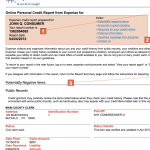If you live in Newark, there’s a fabulous resource that can help you figure out your finances. It doesn’t cost you anything. There are no strings attached and it is not a scam. The Consumer Financial Protection Bureau (CFPB) in Washington wants to help you.
The CFPB is the relatively new federal government bureau that is designed to educate consumers. It also is a watchdog against financial fraud and aggressively goes after scammers who target poor people and others who might be susceptible to fast cash schemes.
The bureau recognizes there is a need in Newark and it arranged to set up a way for Newark residents to get in touch with CFPB directly.
It will use the city’s 4311 hotline to allow consumers to connect to the bureau and get answers and file complaints. 4311 is a non-emergency phone line that Newark residents use to access local services. Now everyone with a financial complaint will be re-routed to the CFPB.
“The CFPB’s job is to help consumers navigate the often confusing financial marketplace and to hold financial institutions accountable,” said CFPB Director Richard Cordray. “Through this coordination, we will be able to reach and to help consumers who may not have found us otherwise.”
Why not give them a call and see what they have to say about the issues that concern you.













